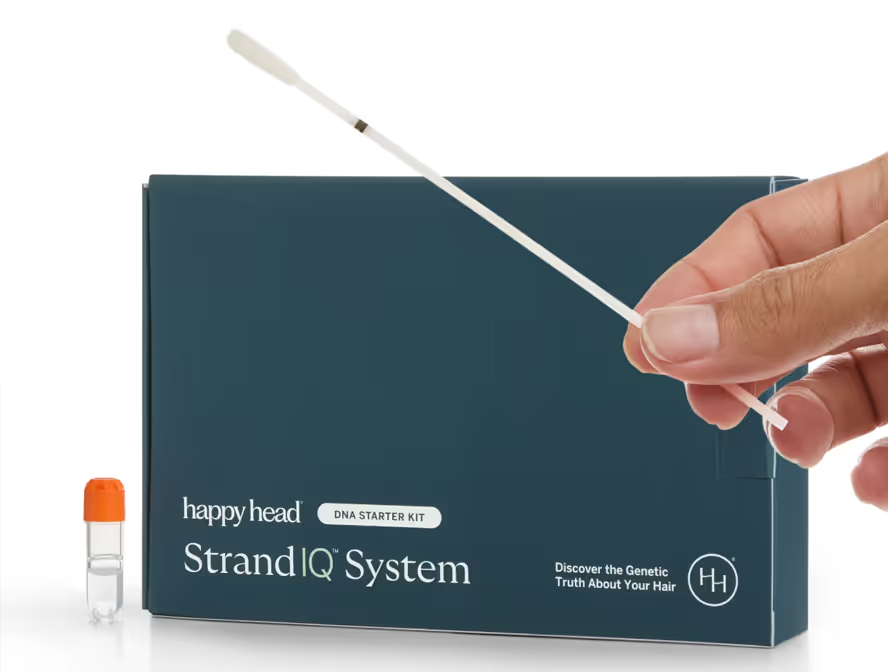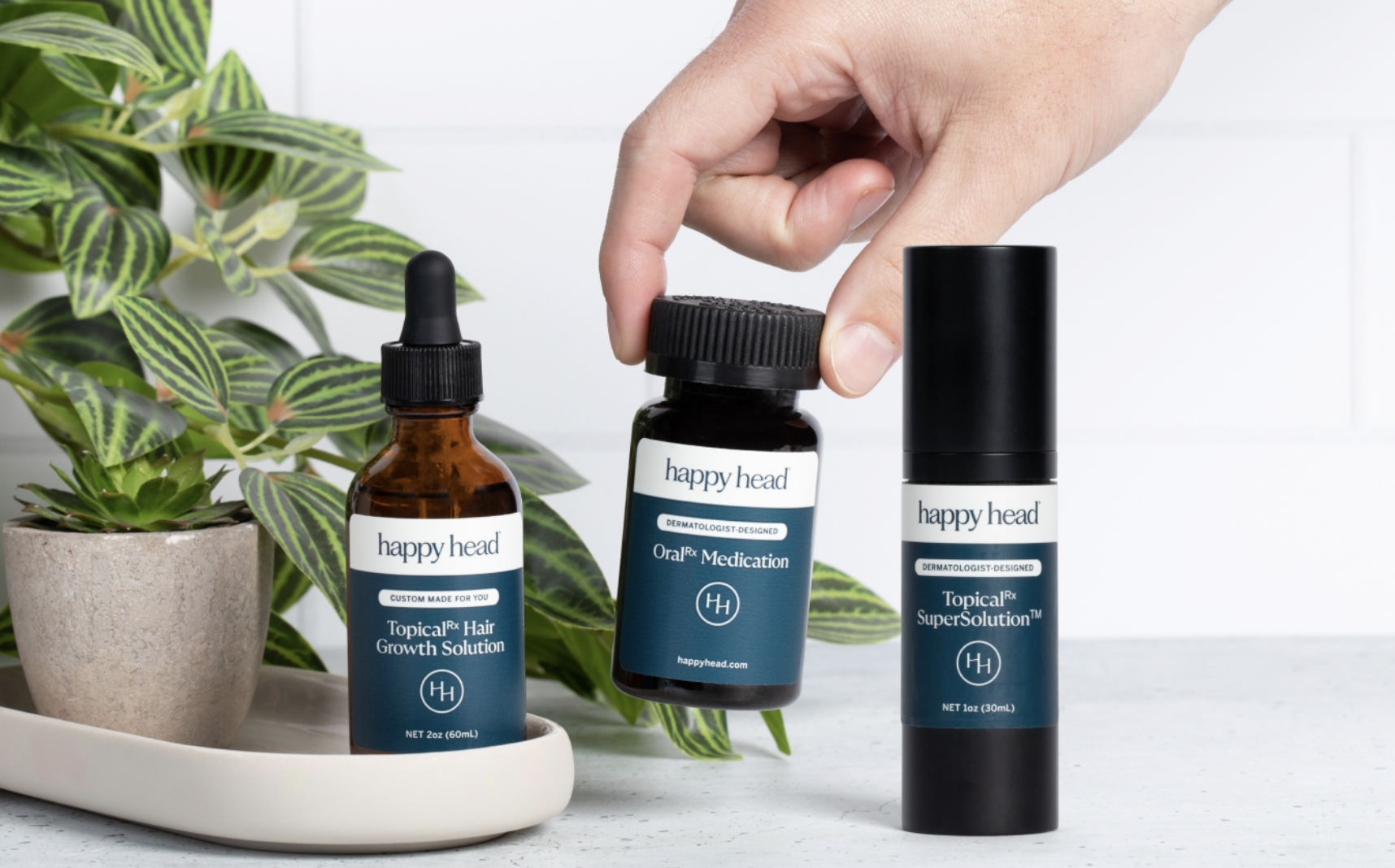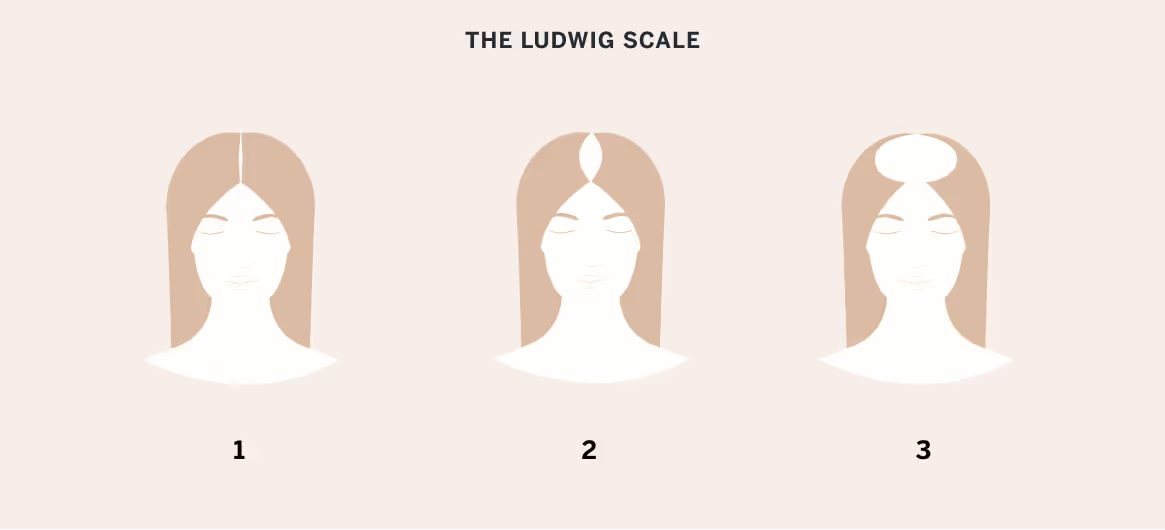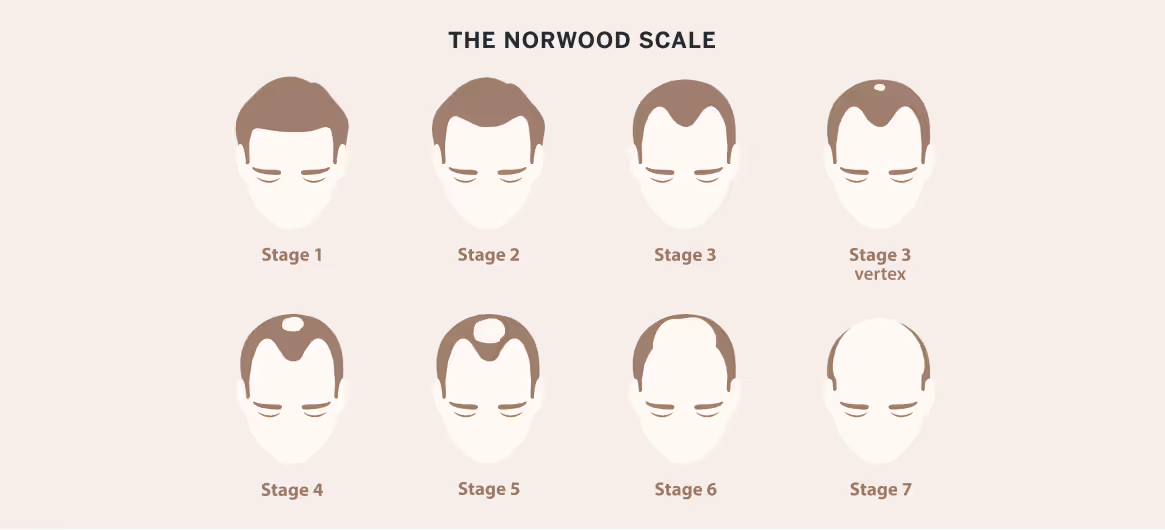Many people don’t realize the profound impact nutrition has on hair health, but the truth is that diet and hair loss are directly connected. When nutrient intake is insufficient, your hair suffers. It’s that simple—but there is hope for those experiencing hair loss due to diet.
The foods you eat provide essential nutrients that support the hair growth cycle, protect follicles, and even influence the scalp environment. From balancing protein intake to maintaining vitamin levels, a well-rounded diet can be your secret weapon in achieving thick, healthy hair.
In this guide, we’ll explore how your diet influences hair health, identify the key nutrients that promote growth, and provide practical recommendations for nourishing your hair from the inside out.
Understanding Hair Loss and Its Causes
Hair loss can result from either internal or external factors and sometimes a complex interplay of both. While it’s normal to lose 50 to 100 hairs daily, excessive shedding may indicate an underlying issue.
Genetics, hormonal shifts, medical conditions, nutritional deficiencies, stress, and environmental damage can all disrupt the hair growth cycle and lead to hair loss. Identifying the root cause is key to choosing effective treatment strategies.
- Genetic Factors: Hereditary hair loss, known as androgenetic alopecia, is the most common cause of hair loss and often progresses with age.
- Hormonal Imbalances: Changes in estrogen, testosterone, or thyroid hormones can disrupt the hair cycle and lead to thinning.
- Health Conditions: Autoimmune diseases, anemia, thyroid disorders, and scalp infections can all contribute to hair loss.
- Stress: Physical or emotional stress can push hair into the shedding phase, causing temporary thinning known as telogen effluvium.
- Poor Nutrition: Inadequate intake of protein, iron, and essential vitamins and minerals can impair hair structure and growth.
- External Factors: Excessive heat styling, chemical treatments, and tight hairstyles can damage hair and trigger breakage or traction alopecia.
How Hair Grows
Hair growth occurs in cycles that are driven by activity within the hair follicles—tiny structures embedded in the scalp. Growth happens in three main phases: anagen (growth phase), catagen (transition phase), and telogen (resting phase).
Each strand of hair originates from a follicle that produces keratin (a protein) through specialized cells. During anagen, cells in the follicle rapidly divide, forming the hair shaft that emerges from the scalp and continues to grow in length. This phase can last years.
In the catagen phase, growth slows as the follicle shrinks. In the telogen phase, the hair follicle rests before shedding the old hair to make way for new growth.
Each follicle cycles independently, which is why we don’t lose all our hair at once. A healthy cycle depends on nutrition, hormonal balance, and follicle health. Disruptions in this cycle can lead to noticeable hair thinning or loss.

The Role of Diet in Hair Loss
Nutrients are essential to the hair growth cycle, as they support follicle function, cell turnover, and the production of keratin, the protein that forms each hair strand.
A balanced diet fuels the body with vitamins, minerals, proteins, and healthy fats that strengthen hair, promote growth, and prevent breakage.
When the body lacks vital nutrients, it prioritizes critical functions—often at the expense of hair. Poor dietary choices, restrictive eating, or nutrient deficiencies can interrupt normal hair cycling and lead to excessive shedding or thinning.
Nutrient Deficiencies
Deficiencies in key nutrients such as iron, zinc, biotin, vitamin D, and B vitamins can directly impair hair follicle function.
For example, iron is necessary for oxygen transport to the hair roots, while zinc is needed for cell repair and keratin production. Without adequate levels, follicles may shrink or enter a resting phase prematurely.
Biotin and other B vitamins are essential for energy metabolism in rapidly dividing hair cells. When these nutrients are lacking, it can slow hair growth or lead to noticeable thinning and shedding.
Calorie and Protein Restriction
Hair is primarily made of keratin, a protein, and its growth is energy-intensive. If you're not consuming enough calories or protein, the body may divert resources away from nonessential processes, including hair production.
Protein deficiency can reduce keratin synthesis, resulting in weaker, brittle strands and slower growth.
Caloric restriction, especially in crash diets or eating disorders, can shift the body into conservation mode, pushing more follicles into the telogen (resting) phase. This can cause widespread hair shedding, often seen a few months after the dietary change begins.
Rapid Weight Loss
Losing a significant amount of weight quickly can shock the body and disrupt hormonal balance and nutrient absorption. This sudden change may lead to telogen effluvium, a form of temporary hair loss where follicles enter the resting phase prematurely.
Rapid weight loss often involves reduced intake of critical nutrients, which further compromises follicle health. In addition, weight loss-related stress can amplify the problem by triggering inflammatory responses or elevating cortisol, a hormone that can interfere with the hair cycle.
Hair shedding from rapid weight loss is typically noticeable two to three months after the change.

Essential Nutrients for Hair Growth
Hair follicles are among the most metabolically active structures in the body, requiring a steady supply of nutrients to function properly. Just like your skin and nails, hair reflects internal health, and nutritional deficiencies often show up as thinning, breakage, or excessive shedding.
From proteins that form the hair shaft to vitamins and minerals that support follicle function and scalp health, each nutrient plays a unique and vital role in sustaining healthy hair growth.
How Protein Boosts Hair Growth
Protein is the primary building block of hair, as it forms the keratin fibers that give each strand its strength and structure. Without enough protein, the body may enter a conservation mode, limiting energy to nonessential functions such as hair production.
This can lead to shedding, breakage, and weak hair strands. The link between protein and hair loss is well-documented, especially in restrictive or protein-deficient diets.
The Importance of Iron
Iron helps deliver oxygen to hair follicles by supporting red blood cell production. When iron levels are low, especially in menstruating women or people with anemia, follicles may receive inadequate oxygen and nutrients, slowing growth and pushing hair into the resting phase.
Iron deficiency is a common but often overlooked cause of diffuse hair thinning and should be ruled out in unexplained cases of shedding.
Vitamin D
Vitamin D aids in activating hair follicles and regulating the hair growth cycle. It helps maintain the health of the dermal papilla, a structure at the base of the follicle that controls hair growth.
Low vitamin D levels have been linked to conditions such as telogen effluvium and alopecia areata. Sunlight exposure and dietary sources help support optimal levels, especially for those with limited sun exposure.
Vitamin C
Vitamin C is essential for collagen production, which strengthens hair structure and supports the surrounding scalp tissue. It also enhances iron absorption, particularly non-heme iron from plant-based foods, making it vital for anyone prone to iron deficiency.
As a powerful antioxidant, vitamin C protects hair follicles from oxidative stress, which can damage follicle cells and disrupt the hair growth cycle.
Vitamin E
Vitamin E is a fat-soluble antioxidant that protects cell membranes, including those of hair follicles, from free radical damage. It helps improve scalp circulation, ensuring follicles receive adequate oxygen and nutrients.
Vitamin E supplementation may improve hair density in those with deficiency-related hair loss. A healthy intake supports both follicle health and overall hair strand resilience.
Zinc
Zinc supports cell division and tissue repair—two processes critical for hair follicle function. It also helps regulate sebum production, which keeps the scalp moisturized and healthy.
Zinc deficiency is associated with weakened hair shafts, increased shedding, and even delayed wound healing on the scalp. Because the body doesn’t store zinc efficiently, regular intake through diet or supplements is essential for hair maintenance.
Vitamin B Complex
The B vitamins play a vital part in hair health by supporting cell metabolism, oxygen transport, and keratin production. Deficiencies can result in thinning, brittle strands, or slower growth.
Each B vitamin contributes uniquely to follicle health, and a lack of even one can disrupt the hair cycle.
- Biotin (B7): Strengthens the hair shaft and supports keratin production. Biotin deficiency can lead to hair thinning and breakage.
- Niacin (B3): Enhances blood flow to the scalp, ensuring follicles receive nutrients and oxygen.
- Pantothenic Acid (B5): Supports keratinocyte function and may help reduce hair shedding and graying.
- Riboflavin (B2): Aids in energy production at the follicle level. A deficiency can cause hair loss.
- Thiamine (B1): Supports cellular energy needed for the fast-growing hair follicle matrix.
- Pyridoxine (B6): Regulates hormones and protein metabolism, both of which are important for hair health.
- Folate (B9): Supports red blood cell production and DNA synthesis, promoting a healthy scalp and hair growth.
- Vitamin B12: Essential for red blood cell formation and oxygen delivery to the scalp. Deficiency can result in slowed or halted hair growth.
Fatty Acids
Essential fatty acids such as omega-3s and omega-6s help nourish hair follicles, reduce inflammation, and support scalp hydration. They maintain the integrity of the hair shaft and promote a healthy lipid barrier on the scalp.
A deficiency can result in dry, brittle hair and may contribute to scalp conditions such as dandruff or eczema, which can negatively impact hair growth.
Copper
Copper aids in the formation of melanin, which gives hair its color, and supports cross-linking in collagen and elastin to strengthen the hair structure. It also contributes to iron metabolism and the production of red blood cells, indirectly aiding follicle oxygenation.
While copper deficiency is rare, low levels can impair hair strength and pigmentation.
Foods That Promote Healthy Hair
A nutrient-rich diet is one of the most effective ways to support strong, healthy hair. Whole foods provide the essential vitamins, minerals, and proteins your follicles need to grow resilient strands. Prioritizing variety ensures you're covering all nutritional bases.
The best foods for hair health are those that deliver bioavailable nutrients in synergy to help your body absorb and utilize them effectively. Here are some top food sources for key hair-supporting nutrients:
- Protein: Eggs, Greek yogurt, lean meats, legumes
- Iron: Red meat, spinach, lentils, pumpkin seeds
- Vitamin D: Fatty fish (like salmon), egg yolks, fortified dairy
- Vitamin C: Citrus fruits, strawberries, bell peppers
- Vitamin E: Sunflower seeds, almonds, avocado
- Zinc: Oysters, beef, chickpeas, cashews
- B Vitamins: Whole grains, leafy greens, eggs, liver
- Omega-3s: Salmon, walnuts, chia seeds, flaxseeds
- Copper: Organ meats, shiitake mushrooms, dark chocolate
Supplementation and Hair Health
While a balanced diet is the best way to nourish your hair from within, supplements can help fill nutritional gaps, especially when deficiencies are difficult to correct through food alone.
However, not all supplements are equal in quality, and taking too much of certain nutrients can actually do more harm than good.
Benefits of Supplements
Hair supplements can be especially beneficial for people with diagnosed deficiencies, restrictive diets, or conditions that impair nutrient absorption.
For example, iron supplements may restore healthy growth in those with anemia-related hair loss, while biotin or vitamin D can support hair strength and cycling when levels are low.
Multivitamins tailored for hair and special hair growth supplements often combine several key nutrients such as zinc, B vitamins, collagen, and antioxidants to promote scalp circulation, keratin production, and follicle function.
When used appropriately and under medical guidance, supplements can help restore nutrient balance, enhance hair texture and density, and potentially accelerate regrowth after hair loss.
Risks of Over-Supplementation
Over-supplementation can lead to toxicity and unintended hair damage. High doses of certain nutrients—especially vitamin A, selenium, and zinc—have been linked to hair thinning and loss.
Fat-soluble vitamins such as A, D, and E accumulate in the body and can become harmful over time. Additionally, excessive supplementation may disrupt the balance of other essential nutrients, causing imbalances that affect hair and overall health.
Self-diagnosing or taking multiple supplements without professional input increases the risk of adverse effects. For optimal safety, supplementation should always be based on blood work and guided by a healthcare provider.
Diet for Hair Growth: Top Recommendations
While there is no specific diet for hair growth, there are several diet plans that can support healthy hair growth by focusing on nutrient-rich foods.
- Mediterranean Diet: This diet is rich in healthy fats, lean proteins, fruits, vegetables, and whole grains. It emphasizes omega-3 fatty acids from fish, olive oil, and nuts, as well as antioxidants from colorful vegetables and fruits.
- DASH Diet: Originally designed to lower blood pressure, the Dietary Approaches to Stop Hypertension diet focuses on nutrient-dense foods such as whole grains, lean meats, fruits, and vegetables while limiting salt.
- Plant-Based Diet: A well-balanced plant-based diet full of fruits, vegetables, legumes, nuts, and seeds offers vitamins and minerals such as iron, zinc, and vitamins A and C. If following a vegetarian or vegan diet, focus on getting sufficient protein from plant sources such as beans, lentils, tofu, and quinoa.
- Anti-Inflammatory Diet: Chronic inflammation can disrupt hair growth. An anti-inflammatory diet includes foods such as fatty fish (salmon, sardines), berries, leafy greens, and nuts.
Foods To Avoid for Hair Health
Certain foods can negatively impact hair health by increasing inflammation, disrupting hormones, or interfering with nutrient absorption.
- High-sugar diets can spike insulin and androgens, which may contribute to hair thinning.
- Excessive consumption of refined carbs, such as white bread and pastries, may lead to blood sugar instability, weakening follicles over time.
- Highly processed foods often lack key nutrients and may contain preservatives or trans fats that promote oxidative stress.
- Too much alcohol or caffeine can dehydrate the scalp and reduce nutrient availability.
Diet and Hair Loss: The Connection Is Real
Taking care of your hair starts from the inside out. The nutrients you provide to your body determine your hair’s strength, health, and growth.
Eating a well-balanced diet rich in proteins, vitamins, and minerals not only enhances hair vitality but also promotes a healthier scalp and follicle function.
Hair loss is often multifactorial, and while genetics and stress can definitely be contributing factors, your diet directly impacts hair health.
When it comes to diet and hair loss, remember that you have the power to change poor eating habits and improve your overall nutrition to slow loss and promote healthy hair growth.
Talk to a board-certified dermatologist to discuss your goals and find the solution that is best for you.
Frequently Asked Questions
Can hair loss be caused by diet?
Yes, poor diet can lead to hair loss. Deficiencies in protein, iron, zinc, vitamins D and B12, and essential fatty acids can disrupt the hair growth cycle and trigger shedding. Crash diets and restrictive eating plans are especially known to trigger excessive shedding.
Will hair loss from dieting grow back?
In many cases, yes—hair loss from extreme dieting is temporary. Once you restore proper nutrition and address deficiencies, hair can regrow. However, regrowth takes time, typically a few months, and depends on the severity and duration of the dietary imbalance.
How can I stop my hair from falling out while dieting?
To prevent hair loss during dieting, ensure you get enough calories, protein, and key nutrients such as iron, vitamin D, biotin, and omega-3s. Avoid extreme calorie restrictions, and choose a balanced, nutrient-dense eating plan that supports overall health.
What is my body lacking if my hair is falling out?
Hair loss may signal deficiencies in protein, iron, vitamin D, zinc, biotin, or other B vitamins. Absorption issues or a diet low in these nutrients can disrupt the hair cycle and lead to shedding. Your doctor can perform a blood test to help identify the exact cause.
Is creatine good for your hair?
Creatine is primarily known for supporting muscle energy and performance. While it might help with hair strength, it’s not a hair growth supplement. And while there's a theoretical risk that it could affect DHT, there's no solid proof that creatine causes hair loss in most people.











